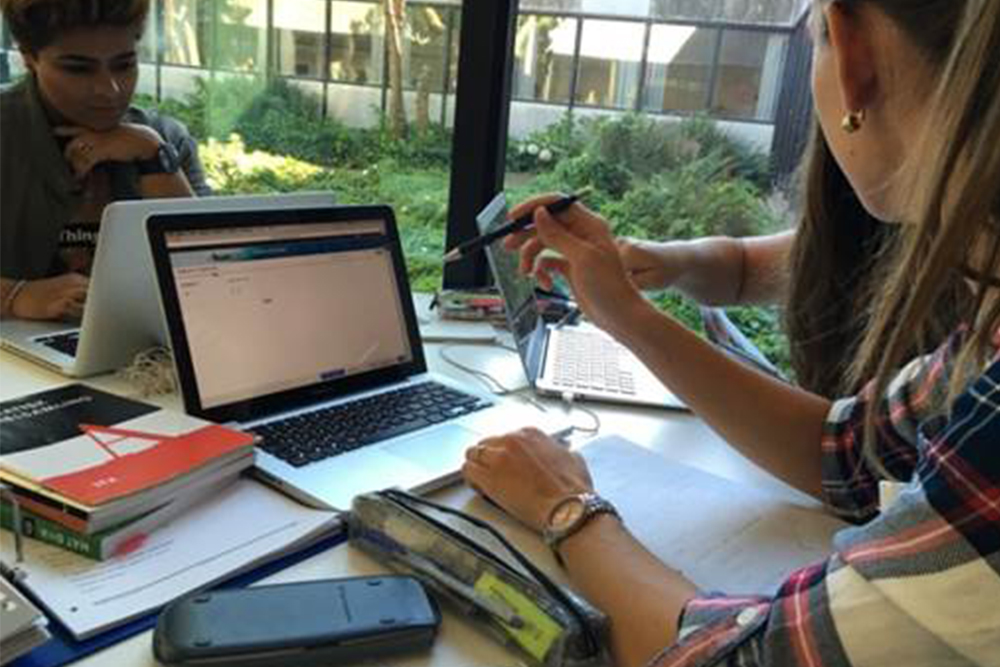The Details
The ability to engage students is crucial when it comes to successfully delivering quality education. Institutions must ensure incoming students are well-prepared to handle the materials they will be studying and effectively equip graduating students with the necessary knowledge and skills to be successful in the professional world. Faculty at the Danmarks Tekniske Universitet (Danish Technical University) have adopted Möbius to implement their vision for successfully meeting the needs of their students.
Lars Riedel, National Subject Advisor and Associate Professor, Mathematics at DTU, introduced Möbius at the school in 2014 after attending a conference that showcased the tool’s capabilities. He immediately became convinced it was a system he could use in his classes to serve as a teaching assistant and a testing and assessment tool. It was an immediate success as both teachers and students appreciated how easy it was to use, and students appreciated receiving instant feedback on their work without having to wait for a teacher. In two years, the DTU has implemented Möbius across all its mathematics courses, encompassing more than 2000 math students each year. “Using Möbius, we provide exercise questions at various levels to engage all students,” said Riedel. “We’ve created more than 230 questions and 300 exercises, with a mix of custom and shared content.”
By 2016, the school administered its first course using Möbius. Forty-eight students took the course, and 47 passed. “Students appreciate how they are able to engage with the materials when preparing for exams,” said Riedel. “We use Möbius as a teaching assistant. Students work through the problems, receive corrections and instruction on problems they got wrong, and can compare it to the solution to see how it should have been completed. This makes the material easier to grasp for the students, and they feel motivated to dig deeper and explore new topics.”
Students in Riedel’s Möbius course begin class each day with 5-8 questions that deal with the previous day’s topics, followed by a lecture on new topics that include exercises. They are then given homework problems to work through problems that may appear on the final exam. “The students love the fact they can do these exercises whenever they want and get a new question on the same topic each time because of Möbius’s ability to generate algorithmic questions,” Riedel said. “It offers them an opportunity to practice the same concept several times until they are through with the topic, and it keeps them engaged and motivated.”

The university also uses Möbius to administer “brush-up” courses for high school students who are new to DTU. In August 2017, more than 2000 students took the brush-up test. While incoming students are knowledgeable, they don’t necessarily have the expected skillset to carry them beyond high school, skills that need to be polished before they can move on to university, Riedel said. “With Möbius students are able to quickly review material, and learn new concepts that will equip them for university,” he said.
New students are invited to spend 4 days at the university, where instructors summarize the highlights from high school mathematics. When they arrive, students are given information on how to use Möbius and what the expectations are. A minimum of 80% is required on the brush-up test. Once the test has been completed, students are given access to practice assignments, covering a variety of mathematical disciplines, to work on areas of weakness. They can take the test as many times as they want in order to improve their grade and be ready for university by the time classes start.
Using Möbius’s courseware capabilities, DTU is enhancing their options for online education. “With Möbius the amount of time students need to be physically present in the University can be reduced, making education more accessible,” said Christian Thune Jacobsen, a director at DTU. “It saves classroom costs for the university, and transportation time and costs for students.”
Two years ago, the school became more aware of the demand for online learning materials because of their YouTube channel, where they posted a series of videos on various mathematical topics. “The response was tremendous,” Jacobsen said. “Some of our videos were viewed over 500,000 times. In five or ten minutes, viewers can get an understanding of the topic, and they can do that at their own convenience. We realized this is the way to go forward, as attention spans of students are now significantly reduced due to increased cognitive load, presence of distractors, complexity of the task, and fluctuating emotional states. Möbius makes it possible for students to take a lesson when they are ready, when it’s convenient for them, and the teacher is accessible to them online.”
Möbius encompasses key factors the school has identified as being necessary for quality online education, such as student-focused tools, professional competency, easy exchange of ideas between teachers and students, recognition of student achievements, and transparency and fairness. The school is currently developing a complete online math course that will cover materials from basic mathematics up to Danish A level, which is required for university assessment. “The big challenges with online education are keeping students motivated and helping them plan their time,” Jacobsen said. “We are confident Möbius will continue to be a valuable tool in connecting with our students and delivering quality education.”
